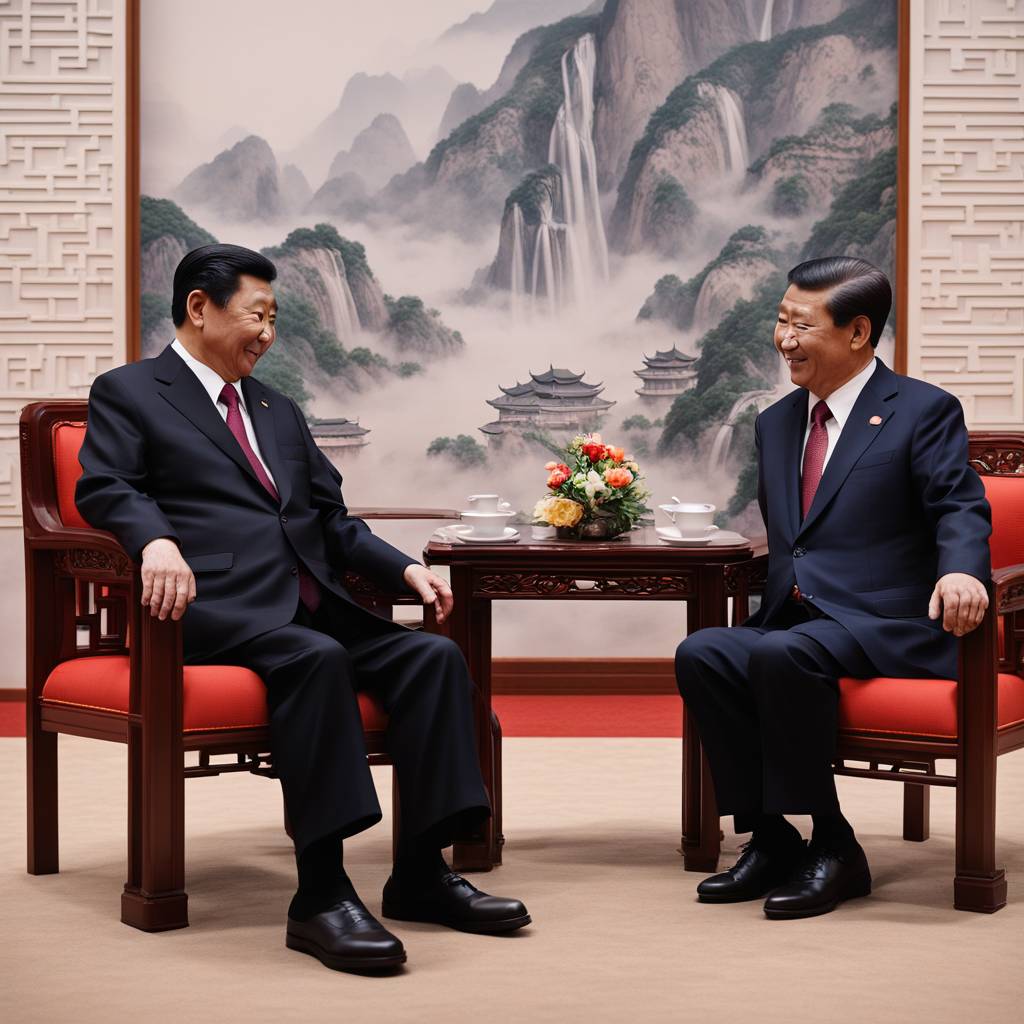When China’s Xi Jinping and then-President Ma Ying-jeou of Taiwan met in 2015, they touted their talks as a step towards peace. However, with Ma no longer in office and fewer Taiwanese supporting closer ties with China, prospects for an amicable settlement seem dim. Xi has cut off high-level contacts with Taiwan, increased military presence around the island, and isolated it internationally. The meeting between Xi and Ma is seen as Beijing’s strategy to set terms for dealing with Taiwan’s new leader Lai Ching-te, who they view as a separatist. China is pressuring Lai’s administration militarily, economically, and diplomatically, while reaching out to politicians like Ma who accept that Taiwan is part of one China.
China is focused on pushing Lai’s administration to adopt a more accommodating stance on cross-strait relations, using Ma’s visit to reinforce the idea that dialogue is conditioned on accepting that both sides belong to ‘one China’. Beijing is also trying to reassure its domestic audience that they maintain control and have not lost the hearts and minds of the Taiwanese. Since the Communist revolution in 1949, Taiwan has been at odds with China. The Nationalists, once Beijing’s dialogue partners, have been supplanted by the Democratic Progressive Party, which rejects Beijing’s claim to the island. China continues to apply pressure on Taiwan, demonstrating its importance to Beijing and warning against separatist activities.
Tensions between China and Taiwan are crucial to China’s relations with the United States, Taiwan’s main security supporter. In a recent call with President Biden, Xi emphasized Taiwan as a ‘red line’ that must not be crossed in China-U.S. relations. Chinese state media has highlighted Mr. Ma’s recent tour to demonstrate that Beijing has friends in Taiwan. Ma’s trip focused on promoting Taiwan as part of a greater Chinese nation, united by culture and history if not politics. However, most Taiwanese people identify with Taiwan as being self-ruled but reject unification with China. Even within Mr. Ma’s Nationalist Party, there is caution towards China, and many in Taiwan see themselves exclusively as Taiwanese instead of Chinese.
Mr. Ma’s trip underscores Beijing’s effort to shape the narrative around Taiwan’s place within China, focusing on cultural and historical ties rather than political differences. The tour also serves as a way to highlight that there are Taiwanese politicians and individuals who support closer ties with China, despite broader sentiment in Taiwan favoring independence. With China increasing its military presence and diplomatic pressure on Taiwan, the situation remains tense. Beijing’s actions suggest an attempt to influence Taiwan’s future political direction and to discourage moves towards independence. The meeting between Xi and Ma reflects the ongoing struggle between China’s desire for unification and Taiwan’s push for self-governance.








